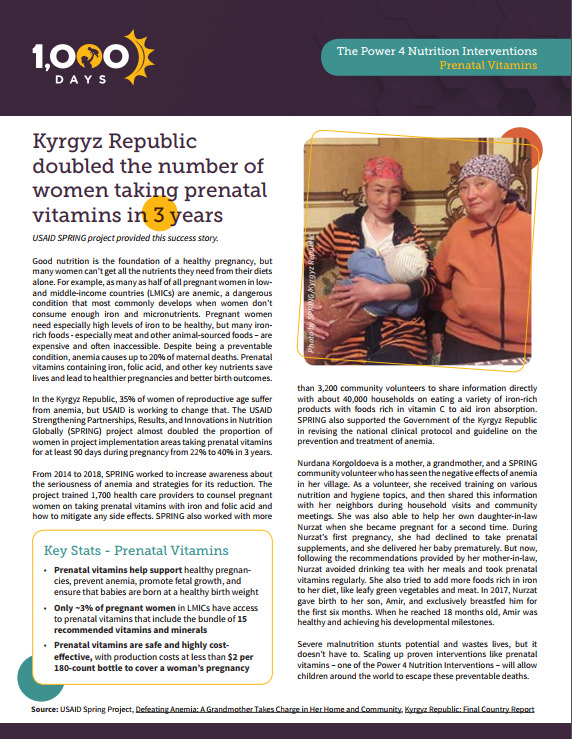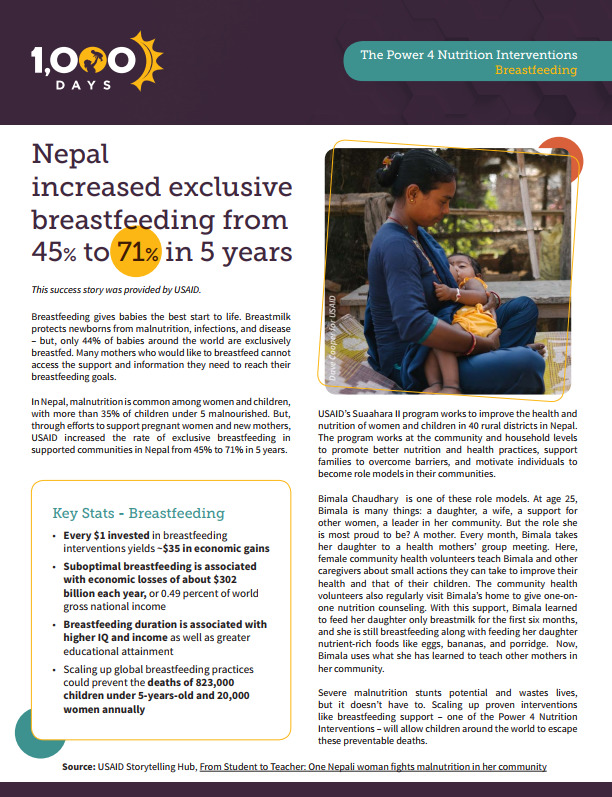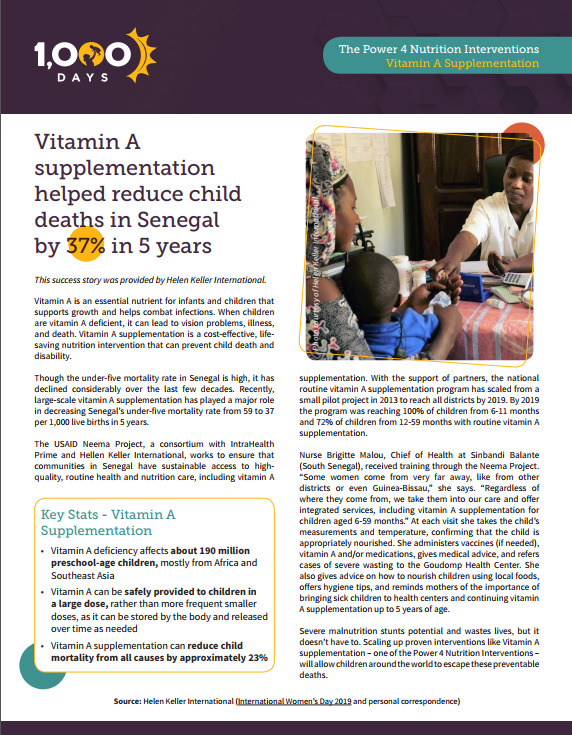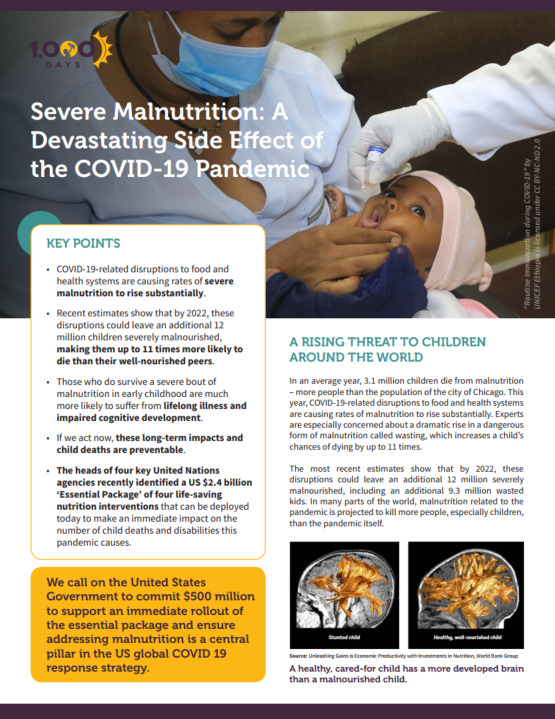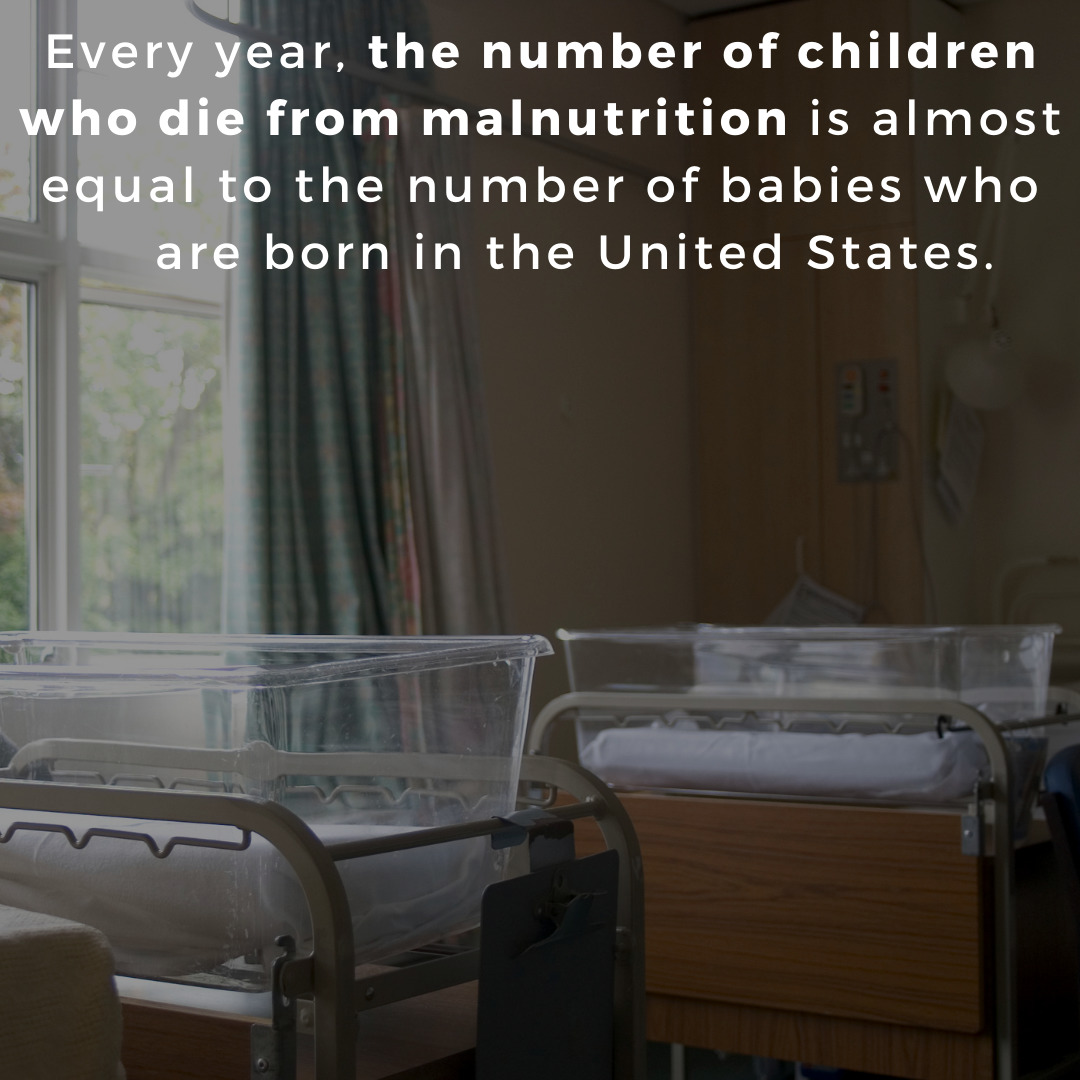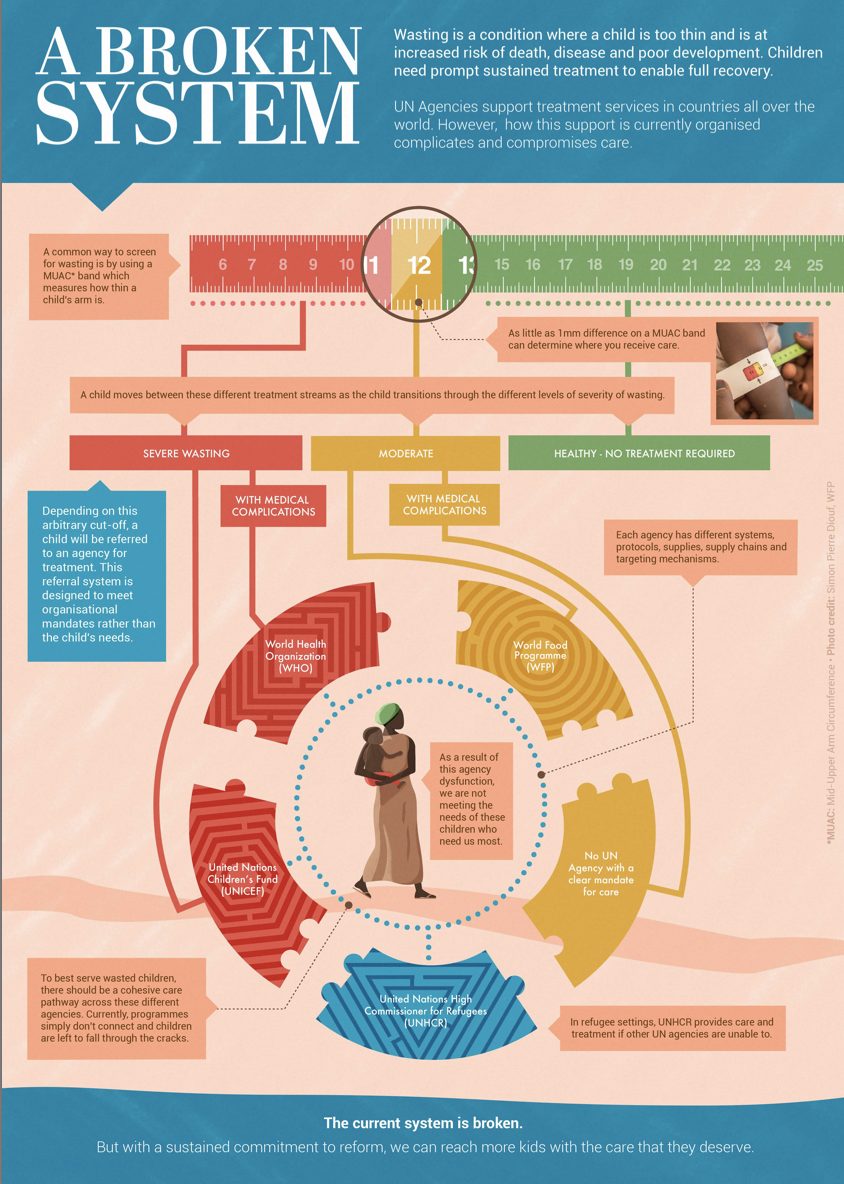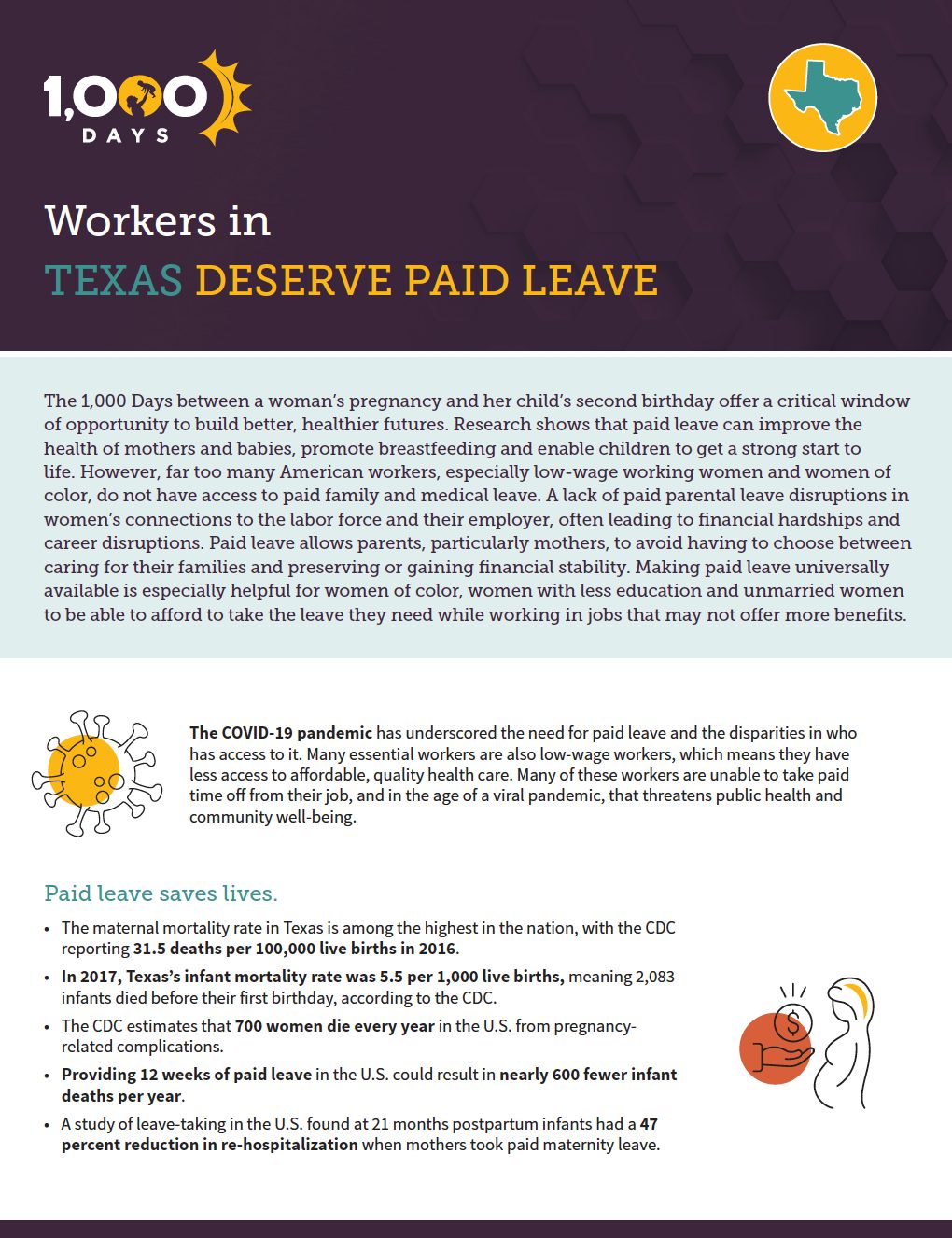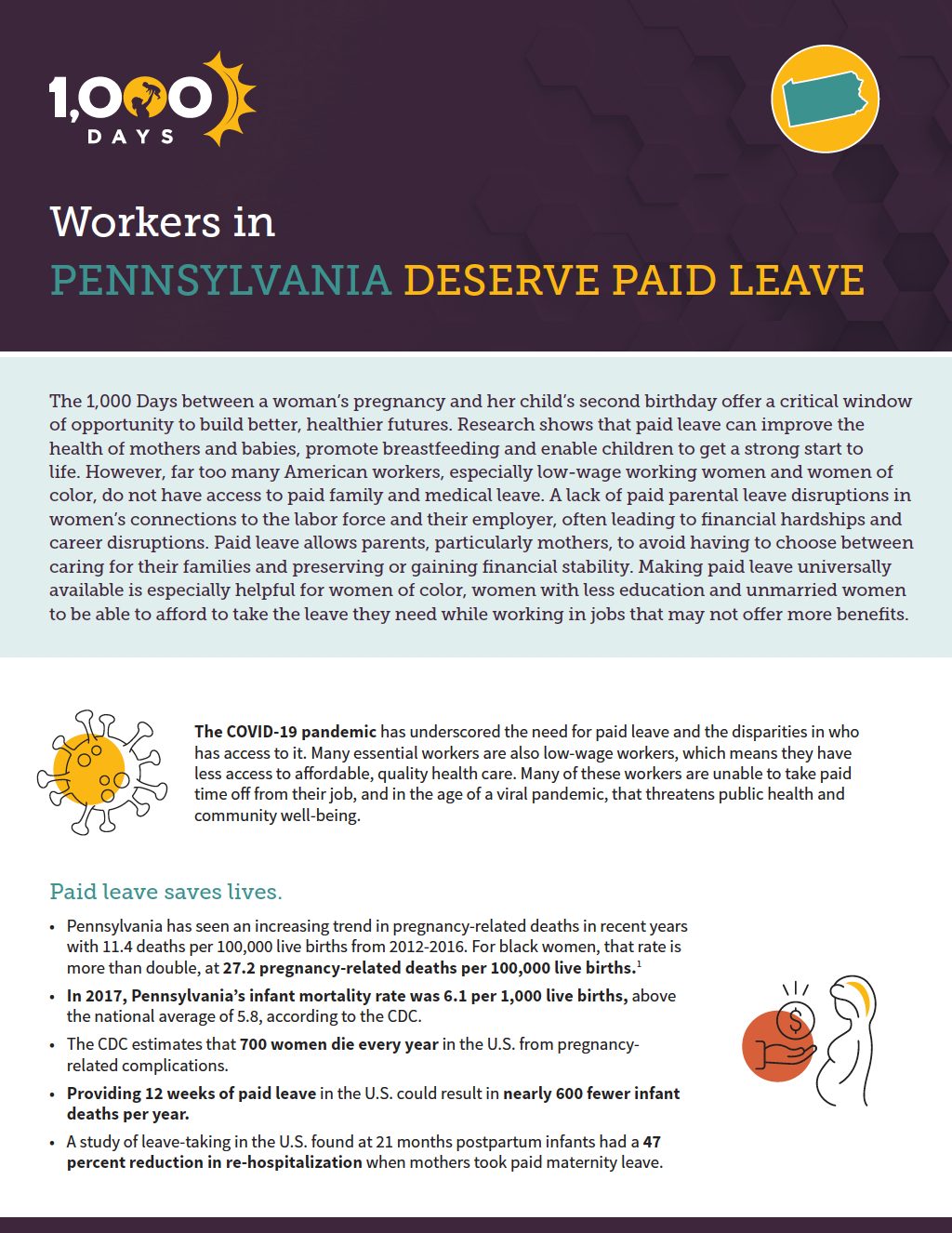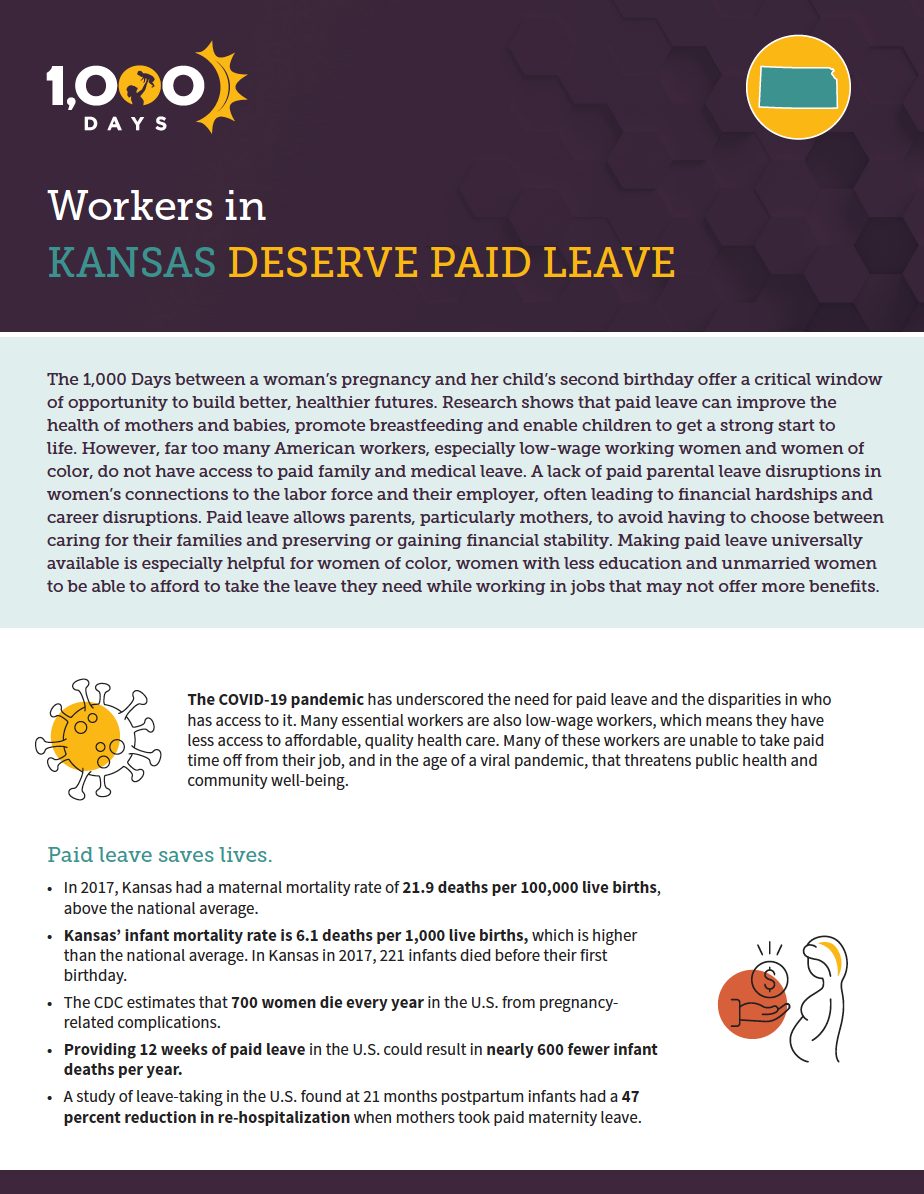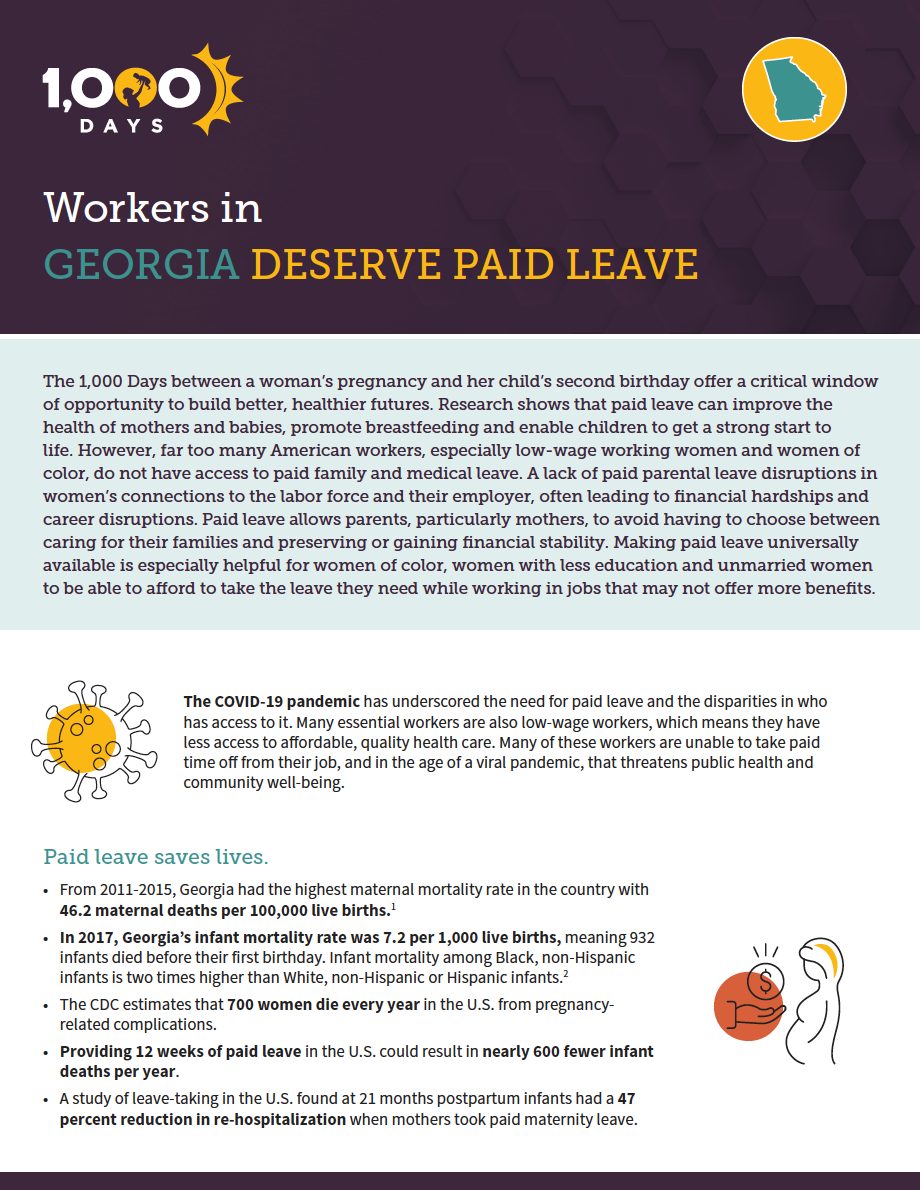The Power 4 Nutrition Interventions: Prenatal Vitamins
There are four essential actions we can take now to prevent children from dying of severe malnutrition: Supply all pregnant women with prenatal vitamins, support breastfeeding mothers, continue large-scale vitamin A supplementation, and expand coverage of specialized foods for treatment. This brief tells a personal story of how a US Government-funded Power 4 nutrition intervention made a difference in the lives of mothers and their babies.
Find an unbranded version here.

